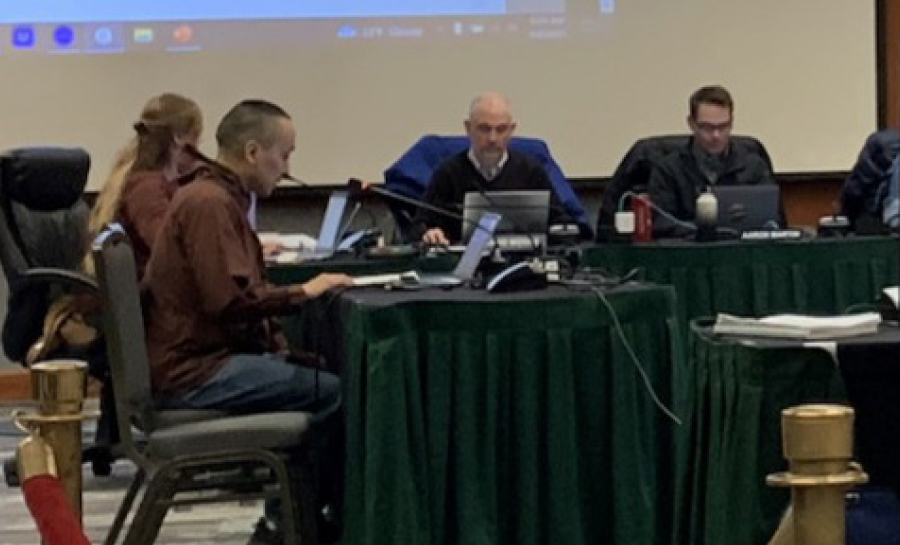
Kawerak Workshop Increases Indigenous Testimony
ttendees took part in a 5-day workshop covering topics such as the structure and operation of the North Pacific Fishery Management Council (NPRMC), the scope of the Council’s management, Tribal issues, bycatch issues, as well as how to testify before the Council.
“The intent of the workshop was to share information with Tribal members about NPFMC including their role in federal fisheries management, and about how to effectively engage in their process through actions like written and oral testimony,” stated Julie Raymond-Yakoubian, Kawerak Social Science Director.
“Often Indigenous voices and the voices of others affected by regulations made at the state and federal level are missing or not heard. These voices are crucial for protection of subsistence resources, which is why Kawerak pursued options to fund this workshop,” said Julie, who applied for the funding. She further reflected, “Indigenous voices and knowledges are underrepresented at the Council and this workshop was an effort to increase the number of people who are knowledgeable about and comfortable navigating and participating in this process.”
NPFMC’s Council provides recommendations for fishery management of federal waters to the National Marine Fisheries Service (NMFS). NMFS manages federal waters from 3 miles to 200 nautical miles off shore. The State of Alaska manages fisheries from the shoreline to 3 miles. The NPFMC, through the Magnuson-Stevens Fishery Conservation and Management Act (MSA), is tasked setting harvest quotas and catch limits, setting gear/season/area restrictions, monitoring, and habitat protection.
On April 9, the NPFMC held one of their five annual meetings and discussed salmon bycatch—specifically chum salmon bycatch in the Bering Sea. With hands-on experience in developing testimony and delivering it to the Council, workshop participants gained the confidence needed to provide testimony during this meeting following the workshop. Jolene Nanouk, from Unalakleet testified, “Finding a balance, and being united with others for our future generations, along with good fish numbers is vital to what our future generations will need in order to keep our traditional way of life to be carried on.” Shaun Daniels of Elim testified, “Every community in Alaska relies on fish for food. Alaskan subsistence way of life should be prioritized.”
Michele Adams, Brevig Mission
Agatha Foxie, Stebbins
Jacob Ivanoff, Unalakleet
Louisa Paniptchuk, Unalakleet
Ron Pitka, Sr., Unalakleet
Gisela Chapa, Bethel
Edward Corp, Bethel
Lisa Ellanna, Fairbanks
Marilyn Stanislaus, Alakanuk
Nathan “Nick” Topkok, Mary’s Igloo/Teller
We are grateful to the Bering Sea Elders Group for generously providing a scholarship for an attendee from the AVCP region to join us. All except one attendee provided testimony before the Council and proudly represented their respective regions and issues related to subsistence harvesting of salmon.